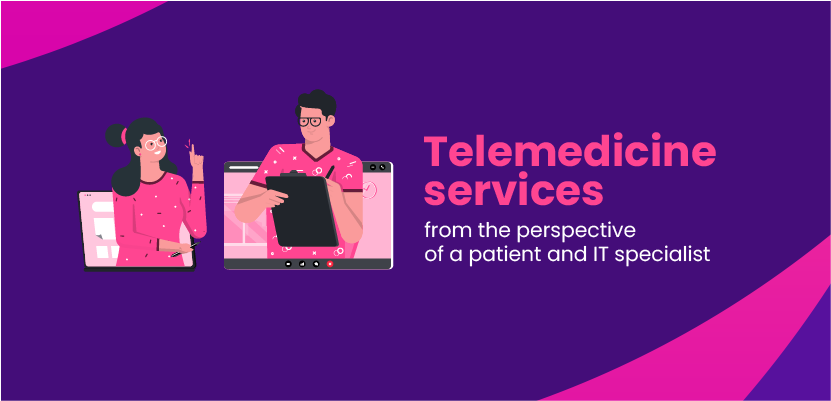Pros & Cons of Outsourcing App Development

Gareth Smith

What are the benefits of outsourcing mobile app development?
Like everything in life there are pros and cons to weigh up in every decision. The decision to outsource app development is no different. In this article we will explore how a company embarking on the design and development of a digital product can leverage the specialized expertise of a custom app development company to reduce costs, save time, buy time to focus on core internal competencies, achieve scalability, and access the latest technologies. It allows companies to streamline the development process and increase the chances of building successful and competitive mobile applications.
Expertise and Experience
One of the greatest advantages to outsource application development is that it allows you to tap into the expertise and experience of a dedicated team or software development agency which specializes in app development. Such an agency has a deep understanding of the latest technologies, design trends, and development best practices, ensuring a high-quality and cutting-edge mobile app. When your app developer has expertise in specific technologies, you can be sure they are experts in their respective fields rather than having a ‘jack-of-all-trades’ who says he can do everything.
Cost and Time Savings
Outsourcing mobile app development can be cost-effective compared to building an in-house development team. You can save on recruitment costs, onboarding and training, infrastructure, and ongoing overhead costs. Additionally, software development outsourcing allows you to remove recruitment time and accelerate development timelines as you leverage the resources and experience of the dedicated development team, enabling faster time-to-market for your app development projects.
Focus on Core Competencies
An outsourcing team allows your internal team and project team to focus on their core competencies, such as strategy, product management, and business growth while your outsourced team can focus on their expertise which is fulfilling efficiently the app development process. An app development project can be very distracting to your in-house team. So, it is critical to delegate the technical aspects of the project to experts, enabling better utilization of your internal resources and maximizing the productivity of your in-house team. A software project requires appropriate project documentation, it requires proper UX/UI design, it requires business requirements to be transformed into development tasks, it requires app developers with the right technical expertise. Being able to trust your software development company is critical to successfully realizing development projects.
Scalability and Flexibility
Outsourcing app development projects provides scalability and flexibility to adapt to changing business needs. You can easily ramp up or down resources based on the project requirements, ensuring optimal efficiency and cost management. It also offers access to a wide range of skill sets, allowing you to incorporate specialized expertise as needed. Good development teams understand the agile way of app development and will always prioritize the highest business value of the client which means scaling up and scaling down the team as the project requires. This can’t be done so easily with an in-house team.
Risk Mitigation
Reputable app development companies will have an established development process, quality assurance measures, and risk mitigation strategies in place. This helps minimize the risks associated with your app development project, such as budget overruns, technical challenges, and project delays, but even more importantly changes in project scope can be made more efficiently without disrupting the development process. You can rely on their experience to navigate potential pitfalls and ensure a smoother development journey. It is worth noting that engaging a software development partner early in the design phase allows business priorities to be understood by all parties from the very beginning. This is key to mitigating risk in the project because all development tasks should reflect the business goals made by your company.
Ongoing Support and Maintenance
When you outsource mobile app development, a reliable outsourcing partner can provide post-development support and maintenance services for your mobile app. This includes bug fixes, updates, feature enhancements, and technical support from the app developers who created the software. It ensures the long-term success and sustainability of your app, and allows your project manager or internal team to focus on achieving their strategic project objectives with peace of mind knowing that their digital product is functioning properly and will not harm the company’s reputation.
While hiring a dedicated team or an offshore team sounds challenging, there are many upsides if it is done properly. So, let’s discuss how to do it properly.

Here are 8 steps to help you outsource app development the right way.
Conducting due diligence on a potential software development partner is crucial to ensure that you choose a reliable and capable partner for your app development project. Here are some steps you should consider before outsourcing app development:
- Define Your Requirements
One of the biggest challenges when outsourcing app development is ensuring that the companies you speak to have the same understanding of your project requirements. It is crucial to clearly outline your project requirements, including any restrictions in terms of the scope, technology stack, timeline, budget, and any specific expertise or experience you are seeking. This will help you evaluate potential partners against your specific needs. Working together with your potential outsourcing app development company to define the scope will also give you an opportunity to see their expertise in such a project.
itCraft will invite you to a 30-minute discovery call and if required a ‘deep-dive’ call with technology experts to dive deeper into the business requirements, user requirements and technology requirements.
- Research and Shortlist Candidates
Conduct thorough research to identify potential software development partners. Look for companies with a strong track record, positive client reviews, relevant experience in your industry or technology, and a solid portfolio of past projects. Shortlist a few candidates that align with your requirements. One good way is looking at case studies of the potential app development agency and see if there are specific metrics which solved the customer’s business needs. Following up with a reference call with their end client to confirm the case study results is a good way of hearing about their specific experience in outsourcing app development.
itCraft is one of a handful of specialized software development agencies in Europe having more than 60 reviews on Clutch with a 100% “willingness to refer” scores, even after 12 years of custom software development.
- Review Company Background
It is also advisable to dive deeper into the background of each app development agency on your shortlist. Assess their industry reputation, the number of years of experience, company size, organizational structure, and financial stability. A stable and reputable company is more likely to be a reliable partner.
Even the CEO of itCraft is willing to jump on a call with potential clients to discuss the vision of the company and explain why itCraft is so passionate about making the lives of people better by leveraging the latest technology.
- Evaluate Expertise and Skills
Assess the technical expertise and skills of the potential partners. Look for their experience in developing similar projects, relevant certifications, and the proficiency of their development team in the required technologies. Request CVs, case studies, references, or client testimonials to validate their expertise.
itCraft has mobile app experts in native Android and native iOS development, as well as Flutter. itCraft also has vast commercial experience in Vue.js, Java, PHP and many other frontend and backend technologies.
- Assess Development Processes and Quality Standards
Understanding your software development partner’s development processes, methodologies (such as Agile or Waterfall), and quality assurance practices not only helps you understand how the working relationship will look, but it also should give you some peace of mind. A reliable partner should follow industry best practices, have a structured development approach, and prioritize quality through rigorous testing and QA processes.
itCraft is ISO9001 and ISO27001 certified and holds itself to international standards of quality management and security management processes respectively. Quality Assurance engineers are involved from the very beginning to ensure the highest quality of your digital product.
- Communication and Collaboration
Evaluate the partner’s communication and collaboration capabilities. Effective and transparent communication is essential for a successful partnership. Assess their responsiveness, willingness to understand your requirements, and ability to provide regular project updates and progress reports.
itCraft’s processes depend on transparency and communication. We believe that our clients are an extension of the team to provide critical business expertise of their respective fields and communication is key to make a project successful.
- Security and Data Protection
Discuss the partner’s security measures, data protection practices, and compliance with relevant regulations, such as GDPR or HIPAA. Ensure they have robust security protocols in place to safeguard your sensitive information and intellectual property.
itCraft has vast experience in digital product design and development in the medical sector which requires strict adherence to security and data protection.
- Contract and Legal Considerations
Review the partnership agreement or contract thoroughly. Ensure that it covers all necessary aspects, including project scope, milestones, timelines, pricing, intellectual property rights, confidentiality, and dispute resolution mechanisms. If needed, seek legal advice to ensure the contract protects your interests.
itCraft’s agreements ensure clarity around IP, ensuring that you legally own the IP rights for every piece of paid work throughout the whole project.
By following these steps, you can conduct comprehensive due diligence on potential software development partners. It will help you make an informed decision and select a partner who is aligned with your project requirements, capable of delivering high-quality solutions, and can be a reliable long-term collaborator. But is outsourcing for everyone?

What are 3 disadvantages of outsourcing?
While the benefits of outsourcing software development for your mobile apps or web apps offer numerous benefits, there are also some potential disadvantages to consider. Here are three disadvantages of outsourcing software development:
- Communication and Language Barriers
One of the challenges of outsourcing mobile app development is managing effective communication, especially when working with an outsourcing company located in different time zones or regions with different native languages. Miscommunication or language barriers can lead to misunderstandings, delays, and potential errors in project deliverables. It requires extra effort to establish clear communication channels and ensure a shared understanding of project requirements and expectations. In order to mitigate this risk of application development with an offshore app development agency, make sure you are comfortable with the app development process and that you speak to the project manager and app developers from the potential software development agency. Ensure there is a high level of English within the whole team and that there are multiple communication channels.
- Loss of Direct Control
When you outsource app development instead of having your project team on site, you are entrusting an offshore team or dedicated team with the responsibility of delivering your project. This can result in a loss of direct control over the development process, as you rely on the vendor’s expertise and project management capabilities. Lack of direct control can sometimes make it challenging to address immediate changes or make real-time adjustments, leading to potential delays or compromises in project execution. In order to mitigate this risk, you must be confident that the outsourcing company has vast commercial experience in delivering similar projects. It is also good to throw some hypothetical scenarios at the potential vendor and ask how they would handle each situation.
- Security and Confidentiality Risks
Sharing your business idea, sensitive information and intellectual property with an external party of outsourced app developers introduces security and confidentiality risks. Ensuring the protection of your data and intellectual property becomes crucial when outsourcing software development. It is essential to thoroughly vet the vendor’s security measures, data protection policies, and adherence to industry standards. Additionally, legal agreements and non-disclosure agreements (NDAs) should be in place to safeguard your intellectual property rights and mitigate the risk of data breaches or unauthorized use of your proprietary information. If such security issues are of the highest priority to your business, ensure your vendor has appropriate certification, like ISO27001, which ensures their security processes have been verified and audited.
These disadvantages can be mitigated through careful selection of the outsourcing company, establishing effective communication protocols, and implementing strong security measures. Conducting thorough due diligence, maintaining open lines of communication, and setting clear expectations can help overcome these challenges and ensure a successful outsourcing partnership.
The top 10 factors to consider before outsourcing software development
While we have looked at some advantages, disadvantages and steps to take when considering outsourcing software development to app development companies, here are the top 10 factors to consider before you decide to outsource mobile app development. While some points are repeated here, choosing the right app development team is critical to successful mobile application development outsourcing.
- Project Scope and Requirements: Clearly define your project scope, goals, and specific requirements before seeking an outsourcing partner. Having a well-defined plan will help you evaluate potential vendors more effectively and ensure they can meet your needs.
- Vendor Selection: Conduct thorough research and due diligence when selecting an outsourcing vendor. Consider factors such as their expertise, experience, portfolio, client testimonials, and reputation in the industry. Look for vendors who have successfully delivered similar projects in the past.
- Communication and Collaboration: Effective communication is crucial for successful outsourcing. Evaluate the vendor’s communication channels, availability, and responsiveness. Ensure they have established processes and tools for seamless collaboration, such as project management software, regular status updates, and clear lines of communication.
- Quality Assurance: Assess the vendor’s quality assurance practices to ensure they have robust testing processes in place. Inquire about their methodologies, testing tools, and protocols for bug tracking and fixing. A reliable outsourcing partner should prioritize quality and have a structured approach to deliver a bug-free product.
- Data Security and Confidentiality: When outsourcing software development, you’ll be sharing sensitive information and intellectual property. Assess the vendor’s data security measures, including physical and digital security, access controls, and data protection policies. Ensure they adhere to industry best practices and comply with relevant data protection regulations.
- Scalability and Flexibility: Consider the scalability and flexibility of the outsourcing partner. Can they handle future growth or changes in project requirements? Evaluate their team size, capacity, and ability to scale up or down as needed. This is crucial to ensure long-term partnership viability.
- Intellectual Property Rights: Clarify ownership and intellectual property rights upfront. Discuss ownership transfer, licensing agreements, and confidentiality clauses to protect your organization’s assets. Ensure these aspects are clearly defined in the contract or agreement with the outsourcing vendor.
- Cultural and Language Compatibility: Evaluate the cultural and language compatibility between your organization and the outsourcing vendor. Consider factors such as work ethics, communication styles, and time zone differences. Cultural alignment can help foster smoother collaboration and reduce potential miscommunication.
- Service Level Agreement (SLA): Clearly define the service level agreement with the outsourcing vendor, including project milestones, deliverables, timelines, and performance metrics. Ensure the SLA includes provisions for handling disputes, change requests, and project management procedures.
- Development Costs and Budget: Consider the cost implications of outsourcing software development. Evaluate the vendor’s pricing models, such as fixed-price or time and materials, and compare them to your budget. While cost is an important factor, it shouldn’t be the sole criterion. Focus on a balance between cost and quality when outsourcing web or mobile application development.
Remember, outsourcing software development requires careful consideration and thorough evaluation of potential vendors. Each project and organization is unique, so it’s crucial to tailor your approach to your specific needs and priorities.
What about nearshore vs offshore?
Advantages of using a nearshore company
Once you have decided that your mobile app development needs can be met by an outsourcing company, the question of where to look will soon appear. There are talented development teams all over the world. Depending on your business goals, you can look at nearshore options, or more offshore options. Here are some things to consider:
Geographic Proximity
Nearshore companies are located in close proximity to your own country or time zone, which can facilitate collaboration and communication. This proximity reduces potential language and cultural barriers, making it easier to align expectations and ensure effective project management.
Similar Time Zones
Working with a nearshore company means there is often a significant overlap in working hours, enabling real-time communication and quicker issue resolution. This can lead to faster development cycles and reduced turnaround times for feedback and updates.
Cost Savings
Nearshore outsourcing can offer cost advantages compared to onshore development. While not as inexpensive as offshore options, nearshore companies often provide a balance between cost savings and quality, making it an attractive option for organizations looking for a cost-effective solution without compromising on expertise.
Cultural Affinity
Nearshore companies are often located in neighboring countries or regions that share similar cultural values, work ethics, and business practices. This alignment can help foster better understanding, collaboration, and a shared vision for the project.
Regulatory and Legal Alignment
Nearshore companies located in neighboring countries tend to have a better understanding of local regulations and legal frameworks, reducing compliance risks and ensuring adherence to data protection and intellectual property laws.
Disadvantages of using a nearshore company
While nearshore outsourcing companies have many advantages, we must consider the other side of the coin. Here are some disadvantages to working with a nearshore app development outsourcing company:
Higher Cost Compared to Offshore
Nearshore companies typically charge higher rates than offshore companies due to their geographic proximity and the associated cost of living. While it is often more affordable than onshore development, it may still pose budget constraints for organizations with limited resources.
Limited Pool of Talent
Depending on the region, outsourcing providers offer access to seriously talented software engineers (especially in Poland). However, some of the available talent pool within nearshore companies may be smaller compared to larger tech hubs or metropolitan areas. This has some limitations when it comes to finding highly specialized or niche skill sets.
Time Zone Challenges
Although nearshore companies offer better time zone alignment than offshore alternatives, there may still be some time zone differences to consider. This can result in minor delays in communication and collaboration, especially for urgent or time-sensitive matters.
Data Security Concerns
Engaging a nearshore company requires sharing sensitive information and intellectual property. It’s crucial to carefully evaluate the nearshore partner’s security measures and data protection policies to mitigate any potential risks associated with data breaches or unauthorized access.
Conclusion
As evidenced by the information presented above, opting for outsourced application development offers numerous advantages, yet it also entails certain hazards that every business should acknowledge prior to embarking on an IT outsourcing journey. Nonetheless, by doing your due diligence on the right outsourcing partner during the vendor-selection process, you can avoid unnecessary risks and establish a mutually beneficial collaboration that propels your business towards achieving the commercial success the project deserves. To find out more about how itCraft can remove some of the pain points of outsourcing your next project, don’t hesitate to drop us a line at hello@itcraftapps.com.






